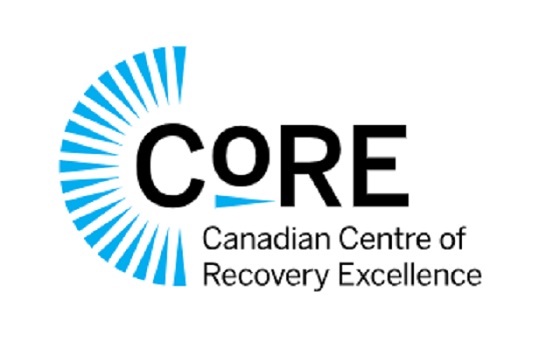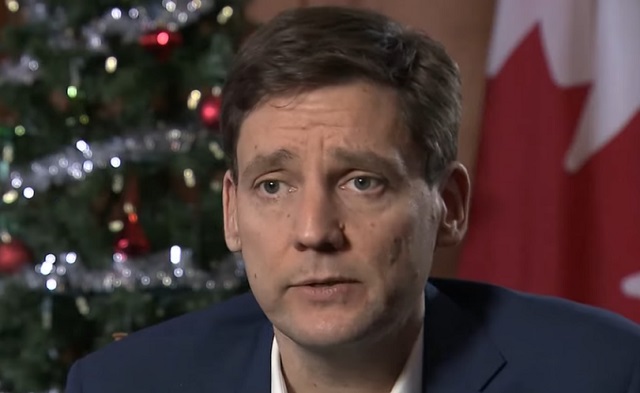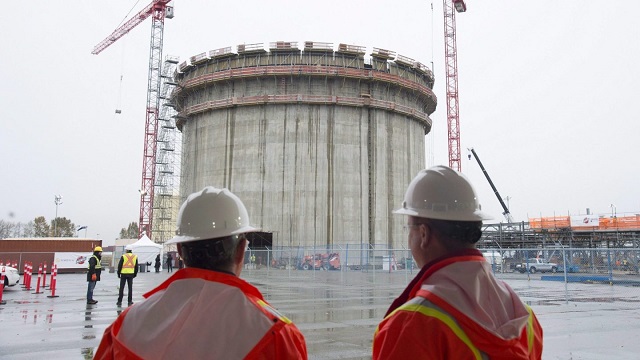Addictions
New organizations for mental health and addictions to provide focused care and take pressure off health system

Refocusing health care: mental health and addiction
Alberta’s government is creating two new organizations that will support the development of the mental health and addiction system of care.
In November 2023, Alberta’s government announced it would be refocusing health care with the creation of four new organizations that will be responsible for the oversight and delivery of health care services in the province. The four new organizations include acute care, continuing care, primary care and mental health and addiction. The mental health and addiction organization will be the first of these to be established when it becomes an entity later this year.
The new mental health and addiction organization, Recovery Alberta, will be responsible for the delivery of mental health and addiction services currently delivered by Alberta Health Services (AHS). In addition, Alberta’s government is establishing the Canadian Centre of Recovery Excellence (CoRE) to support Alberta’s government in building recovery-oriented systems of care by researching best practices for recovery from around the world, analyzing data and making evidence-based recommendations.
“Refocusing health care enables us to better prioritize the health care and services Albertans need. Giving Albertans living with mental health or addiction challenges an opportunity to pursue recovery and live a contributing life is the responsible and compassionate thing to do. I am so proud of the work we have done to be leaders on recovery, and I am looking forward to seeing both Recovery Alberta and the Canadian Centre of Recovery Excellence continue this work for years to come.”
“Alberta is leading the country with the development of the Alberta Recovery Model to address mental health and addiction challenges. The establishment of these two new organizations will support the delivery of recovery-oriented services to Albertans and will further cement Alberta as a leader in the field. We are proud to establish Recovery Alberta and CoRE as part of the Alberta Recovery Model.”
“We’re making good progress on refocusing health care in Alberta. Today marks a pivotal milestone towards creating a system that truly serves the needs of Albertans. Through this refocused approach, our aim is to prioritize the needs of individuals and families to find a primary care provider, get urgent care without long waits, access the best continuing care options, and have robust support systems for addiction recovery and mental health treatment.”
Recovery Alberta
In August 2023, Alberta’s Ministry of Mental Health and Addiction began the process of consolidating the delivery of mental health and addiction services within AHS, a process that was completed in November 2023 with no disruption to services.
Recovery Alberta will report to the Ministry of Mental Health and Addiction and further support the Ministry’s mandate to provide high-quality, recovery-oriented mental health and addiction services to Albertans. It is anticipated Recovery Alberta will be fully operational by summer 2024 and will operate with an annual budget of $1.13 billion from Alberta’s government. This funding currently supports the delivery of mental health and addiction services through AHS.
The current provincial leadership team for Addiction and Mental Health and Correctional Health Services within AHS will form the leadership team of Recovery Alberta. When Recovery Alberta is fully established, Kerry Bales, the current Chief Program Officer for Addiction and Mental Health and Correctional Health Services within AHS will be appointed as CEO. Dr. Nick Mitchell, Provincial Medical Director, Addiction and Mental Health and Correctional Health Services within AHS, will become the Provincial Medical Director for Recovery Alberta.
“Recovery Alberta will build on the strong foundation of existing mental health and addiction services that staff and clinicians deliver. By working closely with Alberta Mental Health and Addiction and the Canadian Centre of Recovery Excellence, Recovery Alberta will continue to set a high standard of care for mental health and addiction recovery across the province, and beyond.”
“Albertans deserve patient-centered care when and where they need it. By establishing Recovery Alberta, we have an opportunity to work together in a new way to make that a reality for our patients and our communities.”
While timelines are dependent on legislative amendments yet to be introduced, the Ministry of Mental Health and Addiction is aiming to establish the corporate structure of Recovery Alberta by June 3. Following the establishment of the corporate structure and executive team, staff and services would begin operation under the banner of Recovery Alberta on July 1.
Frontline workers and service providers will continue to be essential to care for Albertans. To ensure stability of services to Albertans, there will be no changes to terms and conditions of employment for AHS addiction and mental health staff transitioning to Recovery Alberta. Additionally, there will be no changes to grants or contracts for service providers currently under agreement with AHS upon establishment of Recovery Alberta.
Canadian Centre of Recovery Excellence (CoRE)
Alberta’s government has been leading the country in creating a system focused on recovery by building on evidence-based best practices from around the world. In five years, Alberta has removed user fees for treatment, increased publicly funded treatment capacity by 55 per cent and built two recovery communities with nine more on the way. Alberta’s government has also pioneered new best practices such as making evidence-based treatment medication available same day with no cost and no waitlist across the province through the Virtual Opioid Dependency Program.
To continue the innovative work required to improve the mental health and addiction system, Alberta’s government is creating the Canadian Centre of Recovery Excellence to inform best practices in mental health and addiction, conduct research and program evaluation and support the development of evidence-based policies for mental health and addiction. CoRE will be established as a crown corporation through legislation to be introduced this spring.
Alberta’s government has committed $5 million through Budget 2024 to support the establishment of CoRE. It is anticipated CoRE will be operational by this summer.
The CoRE leadership team will consist of Kym Kaufmann, former Deputy Minister of Mental Health and Community Wellness in Manitoba as the CEO. She will be supported by Dr. Nathaniel Day as Chief Scientific Officer of CoRE. Dr. Day currently serves as the Medical Director of Addiction and Mental Health within AHS.
“There is a need for more scientific evidence on how best to help those impacted by addiction within our society. The Canadian Centre of Recovery Excellence will generate new and expanded evidence on the most effective means to support individuals to start and sustain recovery.”
“The Canadian Centre of Recovery Excellence will provide the research and data we need to understand what works best when it comes to recovery. This new expertise and expanded evidence will provide us with further insight into how we can support communities, service providers and frontline staff to effectively help those living with addiction and mental health challenges.”
Quick facts
- Budget 2024 will invest more than $1.55 billion to continue building the Alberta Recovery Model.
- This includes a $1.13 billion transfer from Health to Mental Health and Addiction (MHA) for mental health and addiction services currently delivered by Alberta Health Services.
- Virtual engagement sessions for AHS staff and service providers will be held on April 11, 16, 17 and 22.
Related information
Addictions
City of Toronto asks Trudeau gov’t to decriminalize hard drugs despite policy’s failure in BC

From LifeSiteNews
“Criminalizing the possession of drugs for personal use leads to discrimination and stigma, and contributes to people hiding their drug use from their physicians, friends, family, colleagues, and community”
The City of Toronto is asking Prime Minister Justin Trudeau’s government to decriminalize hard drugs.
In a March letter, Toronto city officials appealed to the Trudeau government to legalize all quantities of crack, cocaine, heroin, meth, and other hard drugs, despite warnings that it will bring increased chaos and violence to the city. Its reasoning is that people look askance at drug abuse and drug abusers, who then attempt to hide their habit.
“The evidence demonstrates that criminalizing the possession of drugs for personal use leads to discrimination and stigma, and contributes to people hiding their drug use from their physicians, friends, family, colleagues, and community,” the document claimed.
The letter, penned by Medical Officer of Health Dr. Eileen de Villa, City Manager Paul Johnson, and Chief of Police Myron Demkiw requested that the Trudeau government decriminalize hard drugs for young people as well as adults. The application places no limit on the quantity of drugs which would be legally obtained.
Toronto is already seeing a rise in crime since the election of Toronto mayor Olivia Chow. Canadians have pointed out that Toronto is dealing with several issues, without adding the decriminalization of hard drugs,
“Trudeau must reject Toronto’s application to allow public use of crack, cocaine, heroin, & other hard drugs,” Conservative Party leader Pierre Poilievre wrote on X, formerly known as Twitter.
“His dangerous policy cannot bring the same chaos, death & destruction to more Canadian cities,” he added.
Trudeau must reject Toronto's application to allow public use of crack, cocaine, heroin, & other hard drugs.
His dangerous policy cannot bring the same chaos, death & destruction to more Canadian cities. pic.twitter.com/hG5h9lsWPq
— Pierre Poilievre (@PierrePoilievre) May 1, 2024
Poilievre’s condemnation was echoed by Ontario Premier Doug Ford who promised, “I will fight this tooth and nail. This is the wrong way to go.”
Poilievre further explained that Canadians have already seen the dystopian effects of the decriminalization of hard drugs in British Columbia, which “has caused chaos in hospitals, playgrounds, parks, and public transport.”
READ: British Columbia should allow addicts to possess even more drugs, federal report suggests
Beginning in early 2023, Trudeau’s federal policy, in effect, decriminalized hard drugs on a trial-run basis in British Columbia.
Under the policy, the federal government began allowing people within the province to possess up to 2.5 grams of hard drugs without criminal penalty, but selling drugs remained a crime.
The province’s drug policy has been widely criticized, especially after it was found that the province broke three different drug-related overdose records in the first month the new law was in effect.
Last week, BC Premier David Eby finally admitted that the province’s ‘safe supply’ program was a failure and called on the Trudeau government to reverse the program. However, Trudeau has yet to respond to the province’s appeal for help.
“Safe supply“ is the term used to refer to government-prescribed drugs that are given to addicts under the assumption that a more controlled batch of narcotics reduces the risk of overdose. Critics of the policy argue that giving addicts drugs only enables their behavior, puts the public at risk, and disincentivizes recovery from addiction. Where “safe supply” has been implemented, it has not reduced the number of overdose deaths. It has sometimes even increased it.
The effects of decriminalizing hard drugs in parts of Canada have been exposed in Aaron Gunn’s recent documentary Canada is Dying, and in the British Telegraph journalist Steven Edginton’s mini-documentary, Canada’s Woke Nightmare: A Warning to the West.
Gunn says he documents the “general societal chaos and explosion of drug use in every major Canadian city.”
“Overdose deaths are up 1,000 percent in the last 10 years,” he said in his film, adding that “[e]very day in Vancouver four people are randomly attacked.”
Even Liberals have begun admitting that Trudeau’s drug program has not helped addicts but only added to their problems.
In April, Liberal MP Dr. Marcus Powlowski testified that violence from drug users has become a problem in Ottawa, especially in areas near the so-called “safe supply” centres which operate within blocks of Parliament Hill.
“A few months ago I was downtown in a bar here in Ottawa, not that I do that very often, but a couple of colleagues I met up with, one was assaulted as he was going to the bar, [and] another one was threatened,” said Powlowski.
“Within a month of that, I was returning down Wellington Street from downtown, the Rideau Centre, and my son who is 15 was coming after me,” he continued. “It was nighttime, and there was someone out in the middle of the street, yelling and screaming, accosting cars.”
RELATED: Liberal MP blasts Trudeau-backed ‘safe supply’ drug programs, linking them to ‘chaos’ in cities
Addictions
British Columbia to re-criminalize hard drug use in public after massive policy failure

From LifeSiteNews
British Columbia premier David Eby announced that his province plans to re-criminalize hard drug use in public spaces after its decriminalization last year led to widespread social disorder.
British Columbia is asking the Trudeau government to roll back its drug decriminalization program after increased violence and continued overdoses.
On April 26, New Democratic Party (NDP) premier of British Columbia David Eby announced that he is working with Prime Minster Justin Trudeau’s federal government to re-criminalize drug use in public spaces, including inside hospitals, on transit, and in parks. British Columbia, under permission from the Trudeau government, had decriminalized such behavior in 2023.
“Keeping people safe is our highest priority,” Eby explained in a press release. “While we are caring and compassionate for those struggling with addiction, we do not accept street disorder that makes communities feel unsafe.”
“We’re taking action to make sure police have the tools they need to ensure safe and comfortable communities for everyone as we expand treatment options so people can stay alive and get better,” he continued.
Under the new regulations, police would be given the power to prevent drug use in all public places, including hospitals, restaurants, transit, parks and beaches.
However, drug use would remain legal at “a private residence or place where someone is legally sheltering, or at overdose prevention sites and drug checking locations.”
Eby’s concerns over drug use were echoed by Minister of Public Safety and Solicitor General Mike Farnworth who said, “Our communities are facing big challenges. People are dying from deadly street drugs, and we see the issues with public use and disorder on our streets.”
“As we continue to go after the gangs and organized criminals who are making and trafficking toxic drugs, we’re taking action now to make it illegal to use drugs in public spaces, and to expand access to treatment to help people who need it most,” he promised.
Beginning in early 2023, Trudeau’s federal policy, in effect, decriminalized hard drugs on a trial-run basis in British Columbia.
Under the policy, the federal government began allowing people within the province to possess up to 2.5 grams of hard drugs without criminal penalty, but selling drugs remained a crime.
While British Columbia has not yet indicated it plans to re-criminalize possession, its decision to clamp down on public drug use presents a major departure from its previous tactics of continually liberalizing its attitude toward narcotic use.
Since being implemented, the province’s drug policy has been widely criticized, especially after it was found that the province broke three different drug-related overdose records in the first month the new law was in effect.
The effects of decriminalizing hard drugs in various parts of Canada has been exposed in Aaron Gunn’s recent documentary, Canada is Dying, and in U.K. Telegraph journalist Steven Edginton’s mini-documentary, Canada’s Woke Nightmare: A Warning to the West.
Gunn says he documents the “general societal chaos and explosion of drug use in every major Canadian city.”
“Overdose deaths are up 1,000 percent in the last 10 years,” he said in his film, adding that “[e]very day in Vancouver four people are randomly attacked.”
-

 Canadian Energy Centre2 days ago
Canadian Energy Centre2 days agoNorth America LNG project cost competitiveness
-

 Business2 days ago
Business2 days agoWEF panelist suggests COVID response accustomed people to the idea of CBDCs
-

 Fraser Institute2 days ago
Fraser Institute2 days agoCanada can solve its productivity ‘emergency’—we just need politicians on board
-

 International2 days ago
International2 days agoNYPD storms protest-occupied Columbia building, several arrested
-

 Addictions2 days ago
Addictions2 days agoBritish Columbia to re-criminalize hard drug use in public after massive policy failure
-

 Addictions12 hours ago
Addictions12 hours agoCity of Toronto asks Trudeau gov’t to decriminalize hard drugs despite policy’s failure in BC
-

 Automotive11 hours ago
Automotive11 hours agoVehicle monitoring software could soon use ‘kill switch’ under the guise of ‘safety’
-

 Alberta1 day ago
Alberta1 day agoProtecting the right to vote for Canadian citizens: Minister McIver








